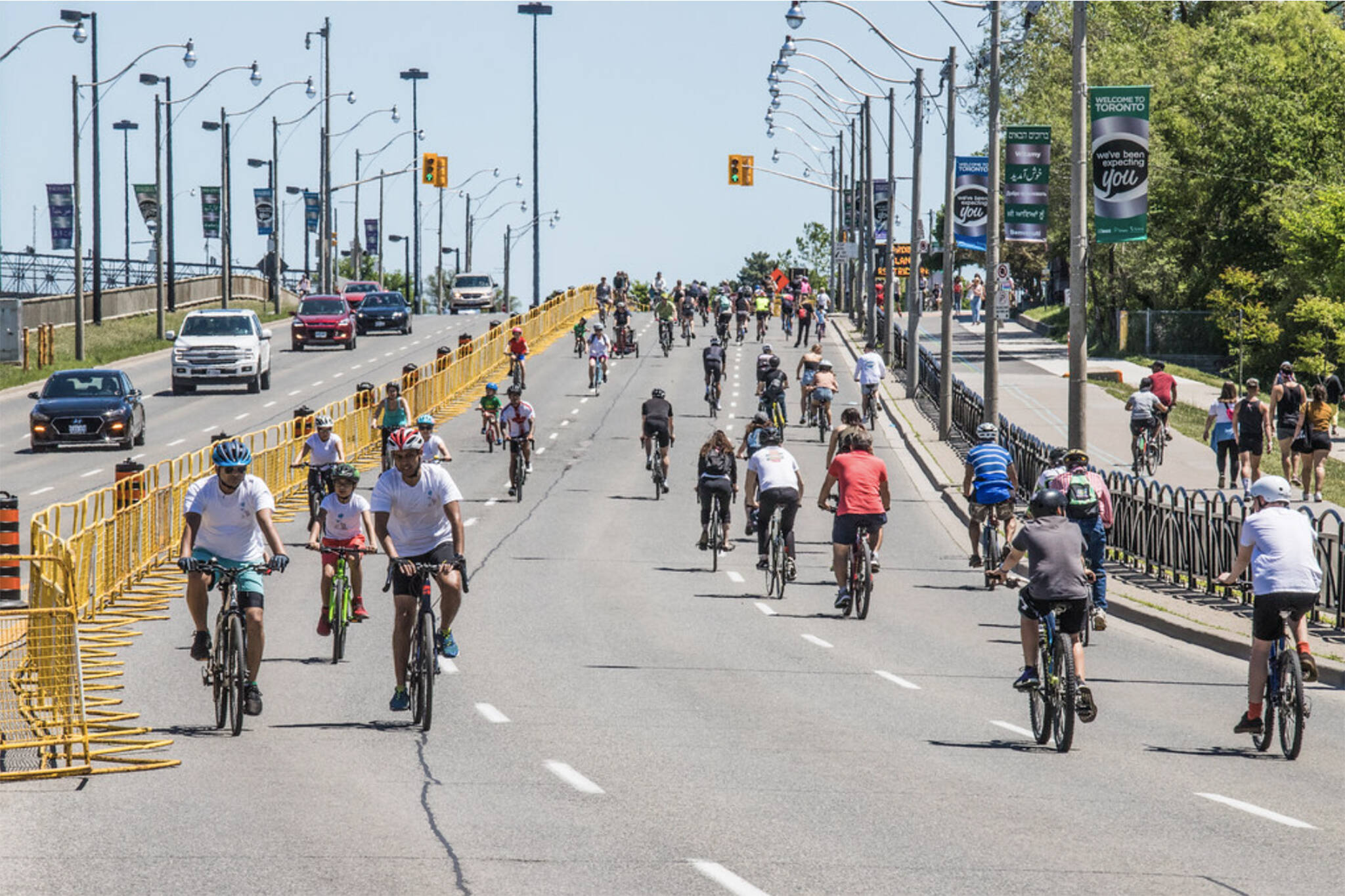
Debate ensues about whether to keep ActiveTO road closures in Toronto post-lockdown
With the vast majority of business operations having now resumed in Toronto, things feel fairly back to normal, and only slated to reopen further as we progress out of Step 3 of Ontario's 3-step roadmap in the coming days.
But as we shed restrictions, there have been questions about what to do regarding some aspects of pandemic life, especially those that have proven beneficial in ways that have nothing to do with preventing the spread of the virus.
CafeTO and ActiveTO are two city initiatives that have made local streets livelier, the former through expanded curbside patios and the latter through the closure of roads to cars for wider pedestrian and cyclist use.
Without cars on our streets they suddenly become space for people, thanks to #ActiveTO. Lake Shore W & E and Bayview have been great. Looking forward to #SpaceForPeople on Allen Road on June 6! pic.twitter.com/tIgwetjR0B
— Cycle Toronto (@CycleToronto) May 15, 2021
Though many have celebrated these initiatives, they have also caused annoyance for others, especially drivers.
People have blamed ActiveTO for unbearable traffic jams and even a spike in accidents as motorists are forced onto alternative routes while key thoroughfares like Lake Shore Blvd. are closed for entire weekends.
Now, one city councillor thinks given how far we are into reopening, it's time to end ActiveTO, which has become less popular than it was peak-lockdown when people had few other options for activities to get outside and occupy their free time.
@JohnTory @cityoftoronto ok Mr Mayor I think we’ve all had enough of the Lakeshore Blvd closures for #activeto GREAT initiative through the warmer weather...now it’s just annoying.
— Alan Drummond (@alandrummond1) October 30, 2020
Though Ward 1—Etobicoke North Councillor Michael Ford acknowledges that the program had merit when roads were eerily empty earlier in the pandemic, with the economy nearly fully open, events returning and tourism on the horizon, he thinks the city will definitely be encountering some huge issues if it continues to close major streets.
"As we are opening up our city and bringing people into the downtown core, I think we have to have a second look at this and I would say bring it to an end," Ford told CP24 this weekend, referencing the "mass amount of congestion" the road closures have been causing.
"As we continue to open up and as we go into September we want people coming into our downtown and that's in all modes, including vehicular traffic."
Sixteen (16) live car lanes at Lake Shore West are all needed for drivers only?
— Andrew (@Andrew_Urbanist) August 1, 2021
That’s insanity and destroys neighborhoods, nature, health and creates a massive amount of pollution! #activeTO pic.twitter.com/WZYctP7zJR
Fellow politicians — including Mayor John Tory — have been avid supporters of ActiveTO, though, and the progressive, Euro feel it's given the city.
But Tory did say to the news outlet that a "balanced" approach will be needed with the program as we move forward and people start traveling here for things like sports games and concerts, which are already taking place.
Cycling advocates, on the other hand, are arguing that an increase in biking in the city over the course of the health crisis necessitates ActiveTO's continuation, and that pedestrians and cyclists could always use more space to safely get out and get to where they're going.
The cyclists can stay on the cycle paths on the lake. Roads are for cars.
— Ian Prittie 🌷financial bubble MC (@thereds8) August 2, 2021
Regardless of what happens as far as the road closures are concerned, cyclists will reap the benefits of the many new permanent bike lanes installed around the city as part of ActiveTO in the last year — which have, predictably, not been immune to becoming grounds for the never-ending battle of cars vs. bikes.
Latest Videos
Latest Videos
Join the conversation Load comments







